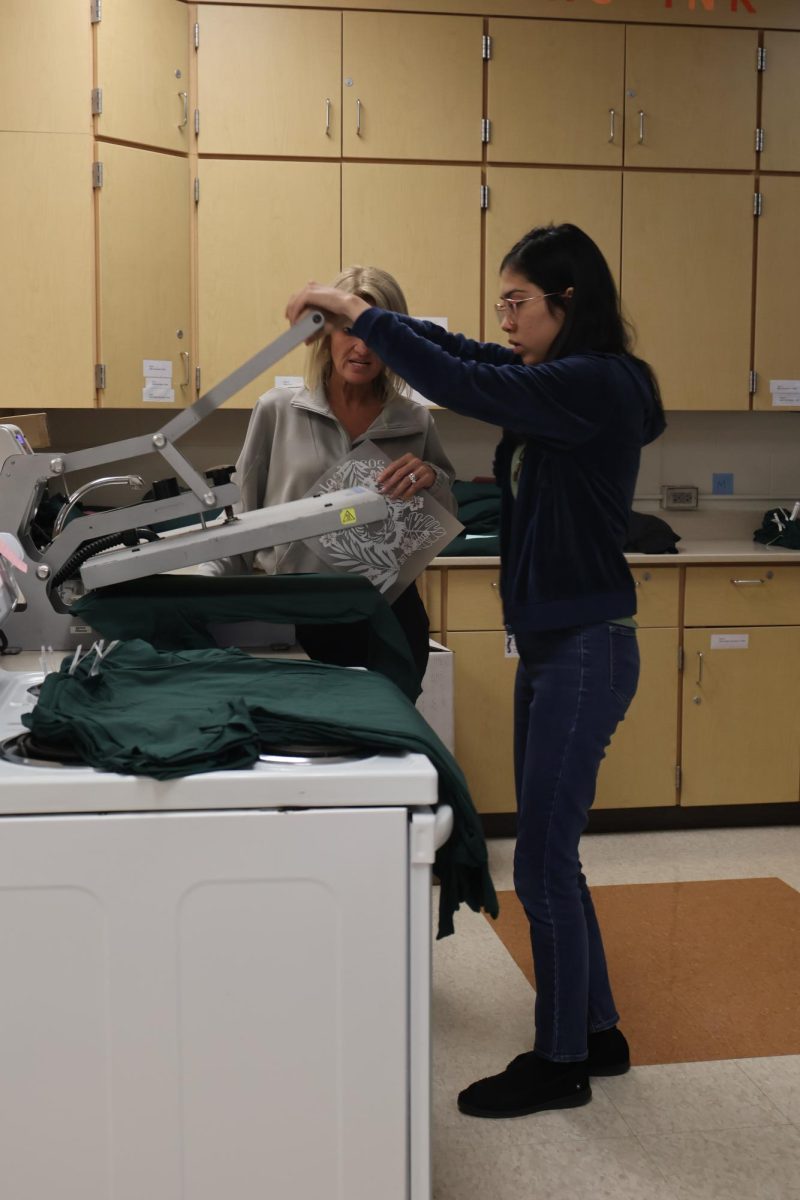Why students should consider taking an IB World Language course

March 24, 2023
World language classes are not required for students to take after their freshman year. However, proceeding past the required classes and into International Baccalaureate (IB) world language courses can be very beneficial to students after they graduate from high school.
There are two IB world language courses available at Fenton High— Spanish and French. Both classes are split into two years, where juniors are able to take Spanish/French 1, and seniors would be able to take Spanish/French 2 the next year.
Before participating in one of these IB courses, one must complete the first three classes available in their preferred language. For example, a student who wants to take IB French would first have to complete French 1, which is typically taken in middle school. The next step would be French 2 during freshman year, which is required for all students who took French in middle school. The last step before IB French would be French 3, which would be typically available during Sophomore year.
Although the process may seem long to some, there are numerous reasons to take an IB world language.
“I am taking an IB language class this year,” junior Klayrabell Johnson said, “because I want to try to earn the Seal of Biliteracy and try to expand my options in careers or colleges.”
The Seal of Biliteracy is awarded to students that have completed all four years of a foreign language class and have passed the IB test. The Seal was created to encourage students to study world languages, embrace their native languages, and give colleges and universities a way to recognize students that have strong biliteracy skills.
Additionally to a broader option for colleges and universities, studying an IB language can be helpful in one’s day-to-day life. According to the United States Census, at least 38.3 million people that live in the United States speak Spanish as their primary language, and 1.2 million speak French at home. Studying one of these languages in high school will enable students to be able to communicate with more people that they may encounter in the future.
“Personally, I’m taking an IB language class because I aim to earn a career in the medical field,” junior Josie Xiong said. “Knowing that I will have to treat and diagnose an array of people of different ethnicities, having a background knowledge of a different language gives me the ability to better understand how a patient of mine feels.”
Along with being helpful for the future, taking an IB language class in high school can have other perks as well.
“This year we went on a field trip to the Detroit Institute of Arts. We went because the IB Language 2 classes learn about art and architecture, so we went and looked at art by French and Hispanic artists,” junior Isabelle Yambrick said. “The trip was super fun and informative. We got to learn about all kinds of art and background knowledge of art we looked at in class.”
Because these are advanced placement classes, one might assume that the workload would be overwhelming. However, with the proper resources, Xiong believes that it is doable for all students.
“The work in IB Spanish is very light. If you get the work done in class then there will be little to no homework,” Xiong said. “I would say it’s pretty basic and straight to the point. The curriculum itself is very fast-paced and you can get lost very easily, but with the proper focus and commitment, the work will come naturally.”
Seniors are also able to year one of these classes if they were not able to take it in their junior year. Although the Seal of Biliteracy is taken in year two, accommodations can be made for seniors to be able to get the Seal of Biliteracy regardless of only taking the class for one year.
With many classes available for students at FHS, an advanced world language class may be a good option for many.







